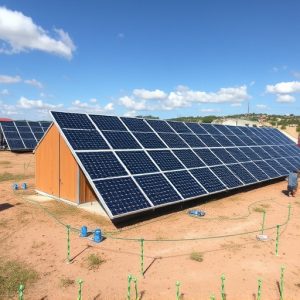Smart home integration leverages Solar Power and advanced technology to revolutionize energy management. By implementing strategic solar panel systems in residential and commercial buildings, this approach reduces dependence on traditional power grids and enhances energy efficiency through real-time monitoring and control. Smart meters and IoT devices enable homeowners to optimize energy usage and costs, while promoting sustainability. This integration facilitates the easy incorporation of other renewable energy sources, fostering greater energy independence. In today's eco-conscious environment, smart home technology optimizes energy efficiency, reduces carbon footprints, and contributes to a sustainable future through seamless Solar Power integration.
In today’s digital era, smart home integration is transforming how we manage energy flows. From understanding the fundamentals of smart home energy management to exploring the pivotal role of solar power, this article delves into seamless integration of renewable energy sources. We’ll examine how smart devices optimize energy consumption, highlighting benefits for both homeowners and the environment. Additionally, we’ll gaze into future trends shaping smart home energy integration, including enhanced solar power capabilities.
- Understanding Smart Home Energy Management
- The Role of Solar Power in Smart Homes
- Integrating Renewable Energy Sources Seamlessly
- Optimizing Energy Consumption with Smart Devices
- Benefits for Homeowners and the Environment
- Future Trends in Smart Home Energy Integration
Understanding Smart Home Energy Management
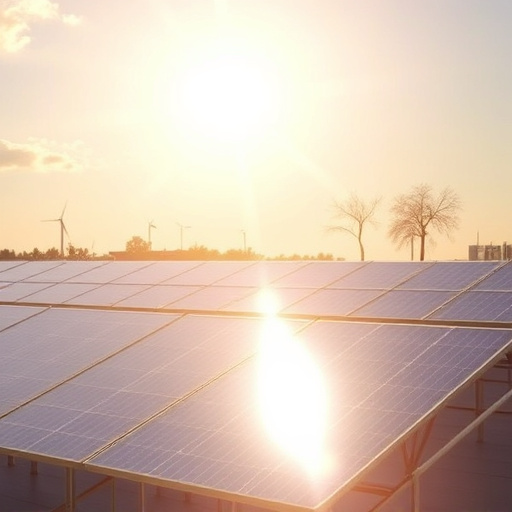
In today’s digital era, smart home integration is transforming how we manage energy flows within our living spaces. At the heart of this revolution lies the strategic implementation of renewable energy sources, with solar power emerging as a game-changer. By integrating solar panels into residential and commercial structures, smart homes not only reduce reliance on conventional power grids but also optimize energy efficiency. This involves advanced systems that monitor and control various appliances and devices, ensuring they operate at optimal levels, thereby minimizing energy waste.
Smart home energy management leverages technology to create a balanced ecosystem where solar-generated electricity is efficiently distributed. This includes the use of smart meters and IoT (Internet of Things) devices that allow for real-time tracking of energy usage patterns. As a result, homeowners can make informed decisions about their energy consumption, potentially reducing costs and contributing to a more sustainable future. Such integration also facilitates the seamless incorporation of other renewable energy sources, enhancing overall energy independence.
The Role of Solar Power in Smart Homes
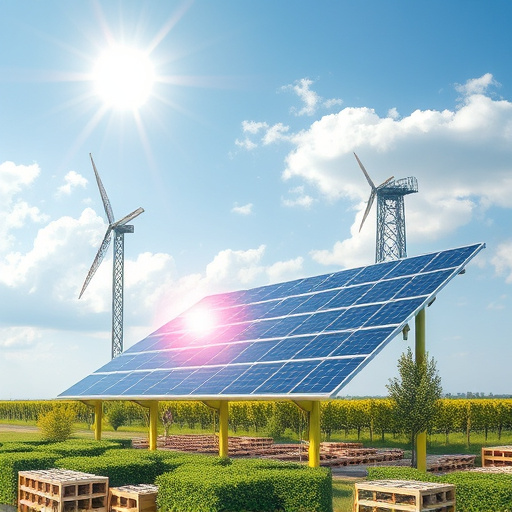
In the context of smart home integration, solar power emerges as a pivotal energy source, fostering sustainable and efficient living spaces. As smart homes strive to optimize energy usage, embracing renewable options like solar becomes increasingly essential. This technology enables homeowners to harness the power of the sun, generating electricity on-site and reducing reliance on traditional grid systems. By integrating solar panels into their properties, residents can actively contribute to a greener environment while enjoying significant cost savings on their energy bills.
Smart home automation plays a crucial role in managing and optimizing solar energy production. Advanced systems can monitor sunlight patterns, adjust shading devices, and schedule appliances to operate during peak solar hours. This synchronization ensures maximum energy capture, enhancing the overall efficiency of solar power systems. Moreover, these integrated solutions allow for real-time data analysis, enabling homeowners to make informed decisions about their energy consumption and further optimize their solar investments.
Integrating Renewable Energy Sources Seamlessly
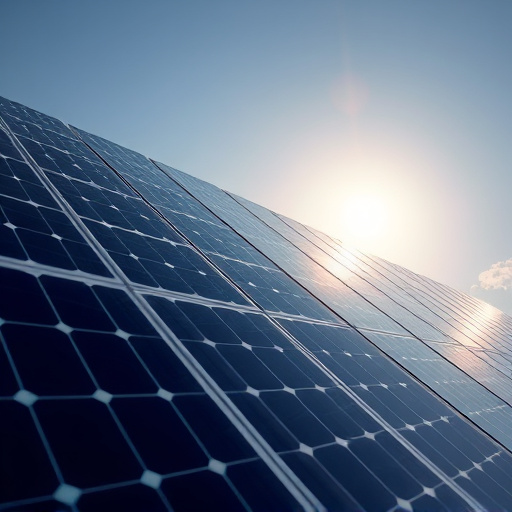
In today’s digital era, smart home integration is revolutionizing energy management by seamlessly integrating renewable energy sources like solar power. By connecting solar panels directly to a home’s electricity grid and utilizing advanced algorithms, homes can optimize energy production and consumption in real-time. This not only reduces reliance on traditional utilities but also allows for more efficient use of clean, sustainable energy.
For instance, smart meters installed in homes equipped with solar panels can monitor the excess energy generated during daylight hours and automatically feed it back into the grid, earning owners credits or even cash through net metering programs. Additionally, predictive analytics enabled by AI helps optimize settings to maximize solar energy capture, further reducing costs and environmental impact.
Optimizing Energy Consumption with Smart Devices
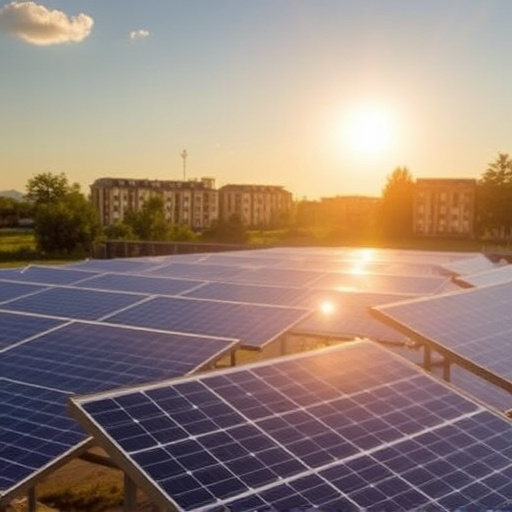
In today’s eco-conscious world, smart home integration plays a pivotal role in optimizing energy consumption. By seamlessly integrating solar power and other renewable energy sources into your living space, smart devices can significantly reduce electricity bills and carbon footprint. These innovative technologies allow for precise control and monitoring of energy flows, enabling homeowners to make informed decisions about their energy usage.
For instance, smart thermostats learn your habits and adjust heating and cooling settings accordingly, while solar panels paired with intelligent energy storage systems maximize the utilization of clean energy. This integration ensures that excess solar power is stored for later use, reducing dependency on traditional grid electricity. As a result, homeowners can contribute to a more sustainable future while enjoying lower energy costs and enhanced comfort in their smart homes.
Benefits for Homeowners and the Environment
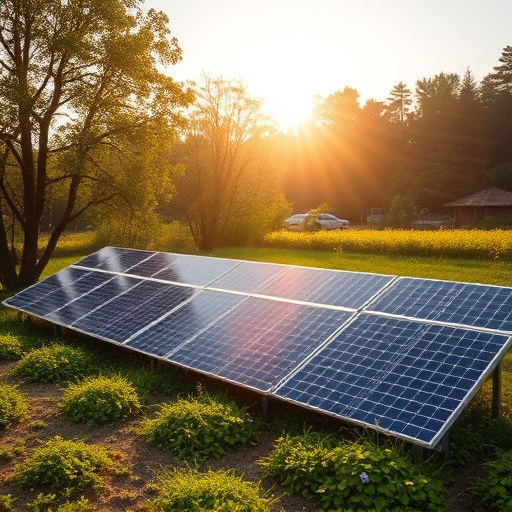
Smart home integration offers a multitude of benefits, both for homeowners and the environment. For residents, it translates to significant energy cost savings. With automated systems, devices like lights, thermostats, and appliances can be controlled remotely or according to pre-set schedules. This means reduced power consumption during peak times, leading to lower utility bills.
On a larger scale, embracing smart home technology contributes to the global shift towards sustainable living. By integrating Solar Power and other renewable energy sources with smart devices, homeowners can optimize their energy usage and reduce their carbon footprint. Automated systems can efficiently manage and distribute energy flows, ensuring minimal wastage and maximizing the benefits of clean energy sources.
Future Trends in Smart Home Energy Integration
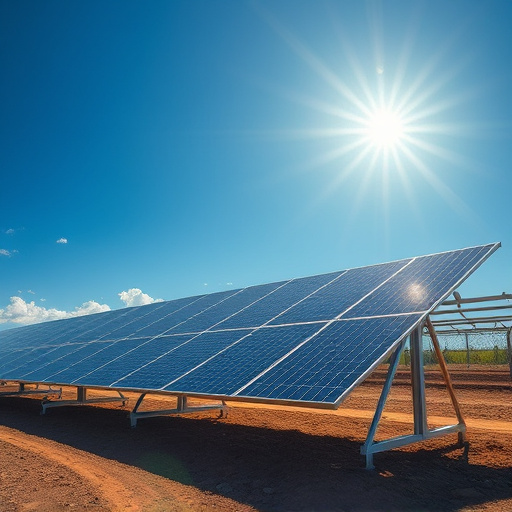
The future of smart home energy integration lies in a more seamless connection with renewable energy sources, particularly solar power. As technology advances, homes are expected to become even more efficient and self-sufficient in their energy consumption. Smart meters and advanced energy management systems will play a pivotal role in this shift, allowing for real-time monitoring and control of energy usage across all devices and appliances within the home.
With increased adoption of solar panels on residential rooftops, smart homes will be able to generate their own clean energy, further reducing reliance on traditional power grids. This integration will not only decrease utility costs for homeowners but also contribute to a more sustainable and environmentally friendly future. Advanced battery storage systems, coupled with predictive analytics, will enable homes to store excess solar energy for use during peak demand or power outages, enhancing resilience and independence.
Smart home energy management, powered by innovations like solar power, is transforming how we interact with our living spaces. By seamlessly integrating renewable energy sources and optimizing consumption through smart devices, homeowners can significantly reduce their environmental footprint while enjoying lower energy bills. As technology continues to advance, the future of smart home energy integration promises even greater efficiency, making it a vital step towards a more sustainable world. Solar power, in particular, stands as a prominent game-changer in this landscape, offering a clean and abundant energy source for homes across the globe.
